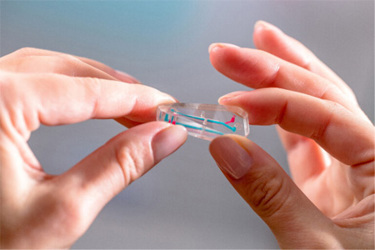What Are Organ-Chips?

Organ-on-a-Chip technology is a revolutionary approach to drug development and research that aims to create models that better reflect human biology. These chips combine cell culture with microfluidics to mimic the biological forces of different organs and disease states. They offer advantages over conventional models, such as better predictive validity, improved safety, lower costs, and shorter timelines for drug development. The FDA Modernization Act 2.0 allows for the use of Organ-Chips and other microphysical systems as alternatives to animal studies when submitting new drugs for FDA approval. The Emulate human Liver-Chip has been validated for use in predictive toxicology applications, showing high sensitivity and specificity in detecting drug toxicity. Multi-Organ-on-a-Chip systems are being developed to study interactions between organs and model pharmacokinetics and pharmacodynamics. Despite some limitations, Organ-on-a-Chip technology holds promise for the future of drug development and personalized medicine. The development and standardization of Organ-on-a-Chip technologies are expected to accelerate with the passage of the FDA Modernization Act 2.0. Learn in greater detail about Organ-on-a-Chip technology and how it is paving the way for significant advancements in the field of medicine.
Get unlimited access to:
Enter your credentials below to log in. Not yet a member of Cell & Gene? Subscribe today.
